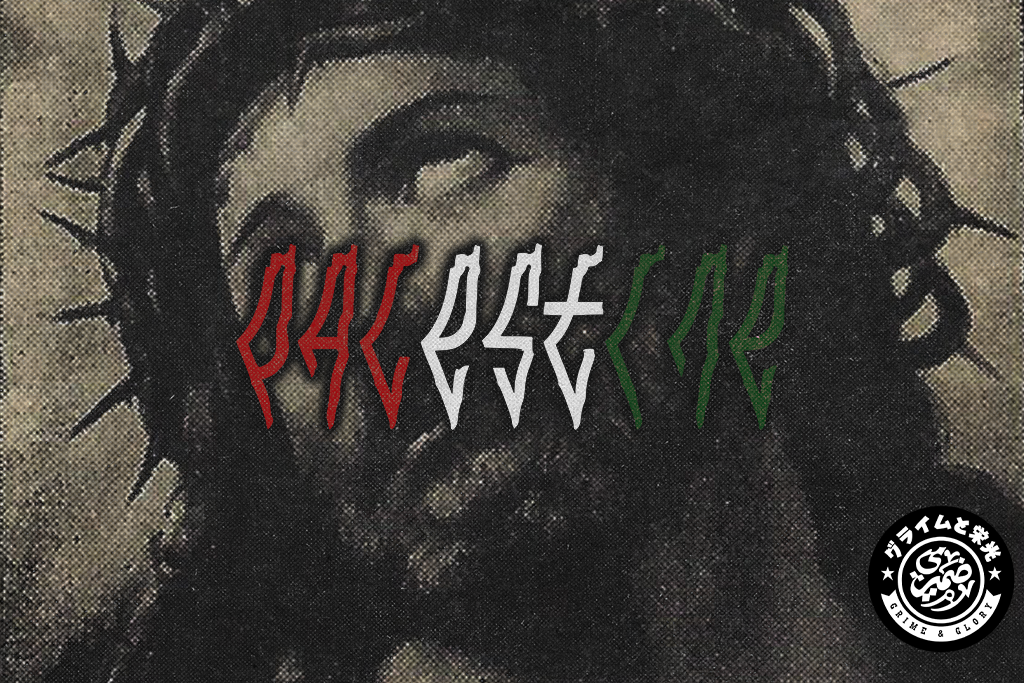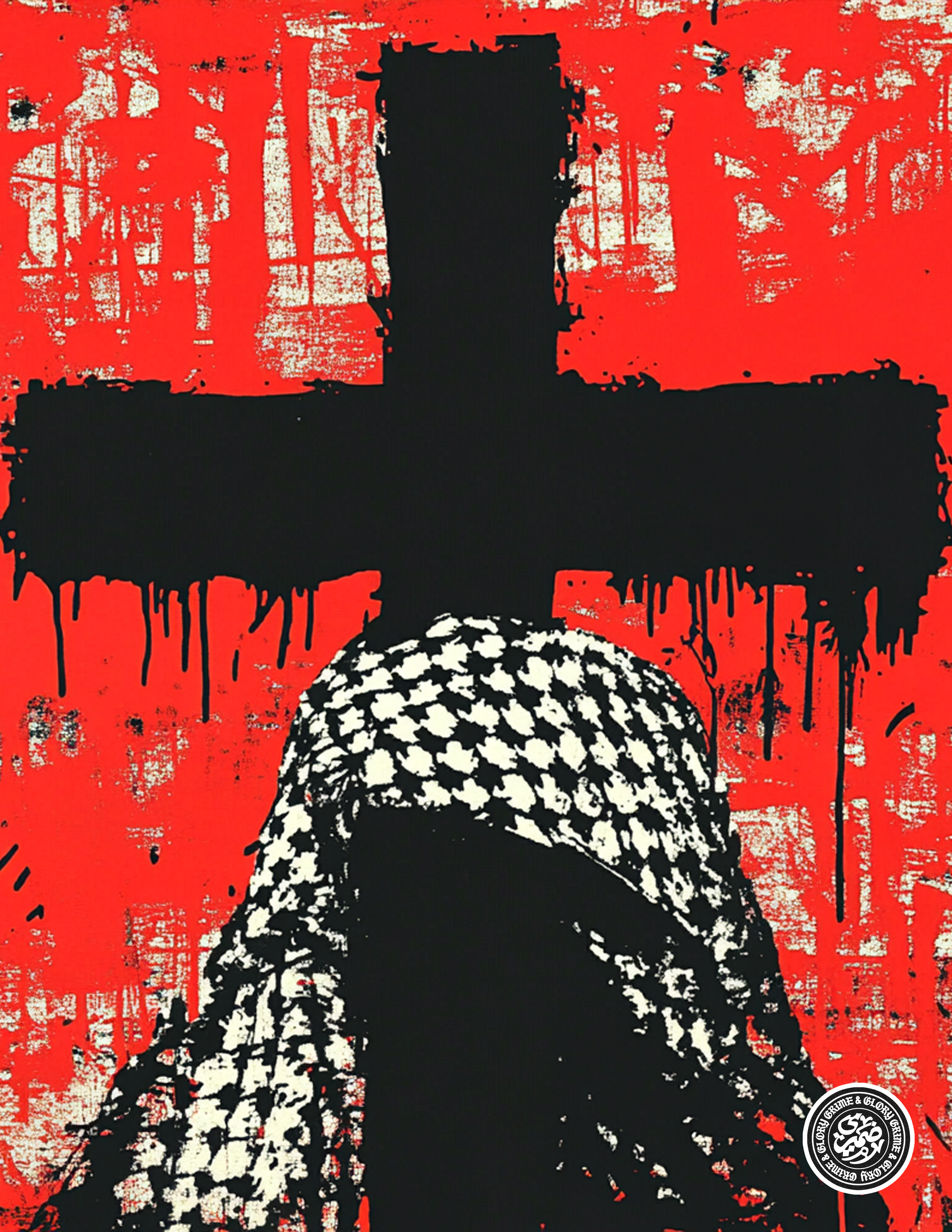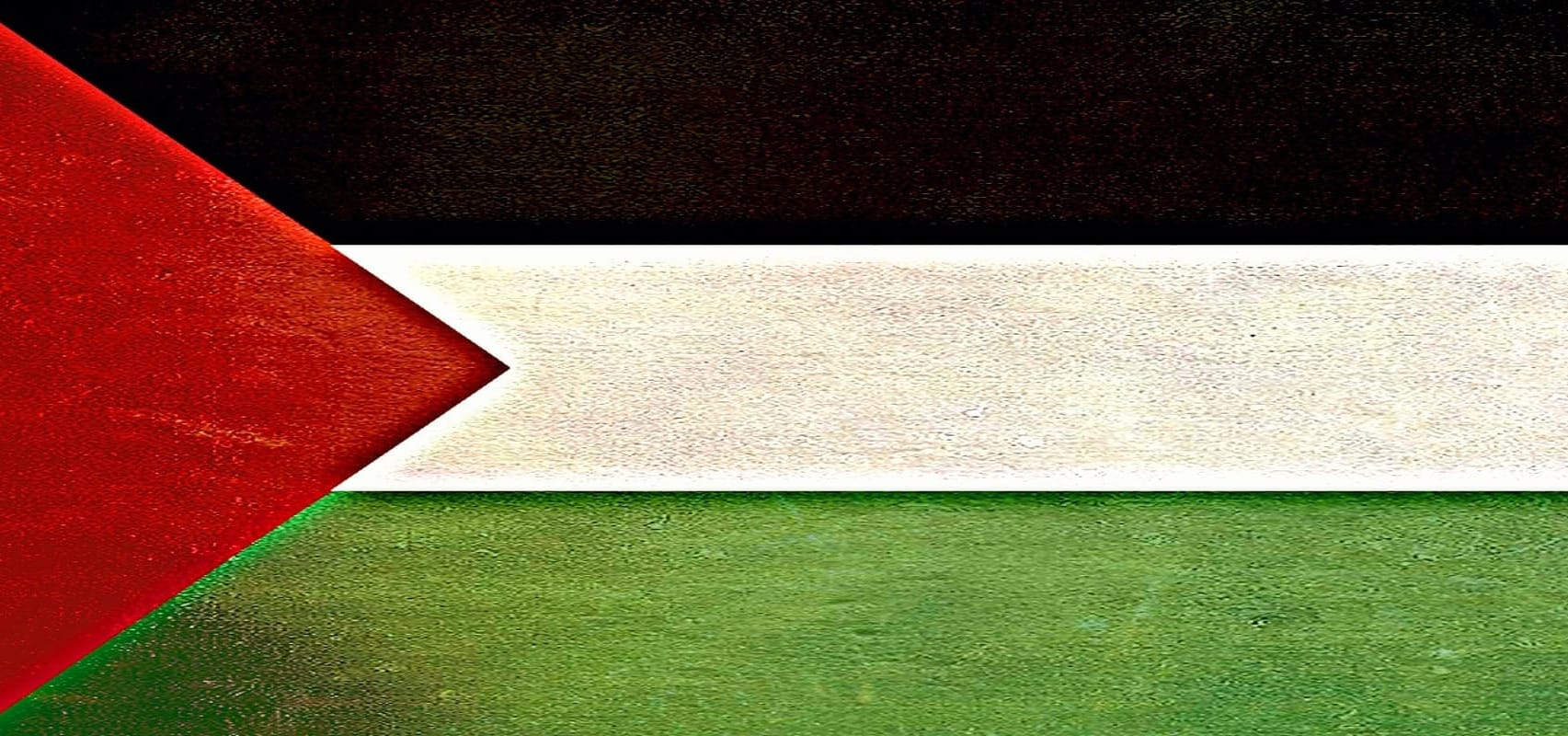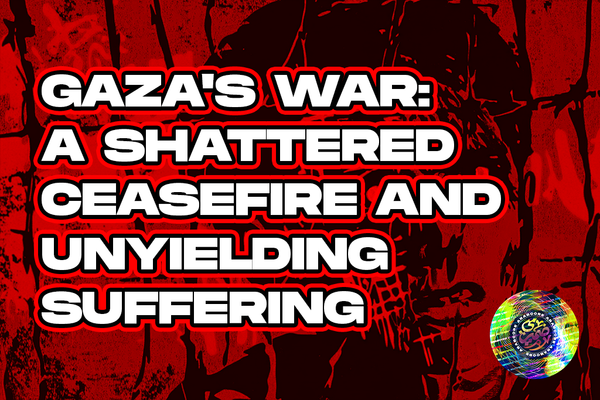Jesus in Palestine: A Story of Faith, Resistance, and the Fight for Justice


As a Southern Lebanese Maronite, I stand in unwavering solidarity with my Palestinian brothers and sisters, and with all Arab Christians who have endured the weight of displacement, occupation, and erasure. Our shared heritage as the descendants of some of the world’s most ancient Christian communities binds us in a profound legacy of resilience, faith, and cultural richness. This legacy demands not only pride but also a solemn responsibility: to preserve the integrity of our collective heritage and to resist its misappropriation to justify oppression—whether against us or anyone else.
This shared commitment to justice is why I wear my solidarity with Palestine as both a declaration and a prayer. When I see the words “Jesus is Palestinian” worn by my fellow Arab Christians, I am reminded of our shared struggle for dignity and liberation. For Palestinians, this phrase is not merely a provocative statement; it is a bold act of reclaiming Jesus’ identity as a Jewish subject under Roman occupation in first-century Palestine. It draws a direct connection between the historical context of Jesus’ life and the contemporary plight of Palestinians. As an Arab Christian, I recognize Jesus not just as a figure of universal salvation but as a symbol of enduring resistance against imperial oppression.
Yet, many bristle at the idea of calling Jesus “Palestinian.” Why?
Some, like contributing writer Peter Wehner at The Atlantic, argue that such a designation seeks to sever Jesus from his Jewish identity. They claim it reflects a nationalist agenda that denies Jewish indigeneity to the Holy Land. But such critiques oversimplify and distort both history and faith. To say Jesus is Palestinian does not negate his Jewish identity—it acknowledges the reality of his life as a disenfranchised subject of an empire, living in a land we now call Palestine. It challenges the revisionist histories that have sought to erase or obscure the deep and diverse heritage of the Holy Land, which is central to the identity of all Arab Christians, including Maronites like myself.

Reclaiming Historical Truths
The history of Palestine predates Roman rule by centuries, with the term “Palestine” appearing in ancient records as early as the late Bronze Age. Variations of the name were used by Egyptians, Assyrians, and Greeks, including the historian Herodotus, long before the Roman Empire. This land has always been a crossroads of civilizations and identities, and its story cannot be reduced to the binaries often imposed by modern political narratives.
However, Western interpretations of Holy Land history have frequently been shaped by Orientalist perspectives that prioritize biblical literalism over archaeological and historical evidence. These narratives often serve political agendas, such as justifying the establishment of modern Zionism or obscuring the settler-colonial realities faced by Palestinians. For Arab Christians, this distortion is not just a misrepresentation of history—it is an erasure of our lived reality and a denial of our identity.
As Edward Said, the late Palestinian Christian scholar, wrote in Permission to Narrate, “Facts do not at all speak for themselves but require a socially acceptable narrative to absorb, sustain, and circulate them.” The dominant narratives about the Holy Land often reinforce systems of power and oppression, sidelining the voices of those who live under occupation. For Palestinians and Arab Christians alike, reclaiming the truth of our shared history is an act of resistance—a refusal to be erased.

Why Jesus Matters to Palestine and the Arab World
Howard Thurman, a 20th-century theologian, reminds us in Jesus and the Disinherited that Jesus was a poor Jew, marginalized under Roman rule, and subject to the cruelty of imperial oppression. Jesus’ lack of Roman citizenship meant he had no recourse against injustice. This experience resonates deeply with Palestinians today, who, like Jesus, endure displacement, systemic discrimination, and the violence of occupation.
To say Jesus is Palestinian is to affirm his role as a liberator within the context of Palestine—a land that continues to suffer under occupation. This affirmation does not diminish Jesus’ Jewish identity but highlights the broader message of liberation and justice that he represents. For Arab Christians, Jesus is both a historical figure rooted in the realities of our region and a universal symbol of hope in the face of oppression.
Palestinian liberation theologian Naim Stifan Ateek emphasizes this connection in A Palestinian Theology of Liberation, where he argues that Christ’s humanity and suffering provide a lens through which to interpret scripture in ways that speak to the lived experiences of Palestinians today. Ateek writes, “The most useful hermeneutical key is Jesus Christ himself.” This perspective inspires not just Palestinians but all Arab Christians to view their faith as a source of strength and resistance against injustice.

The Parallels of Displacement and Occupation
The story of Jesus’ birth in Bethlehem, as recounted in the Gospel of Luke, echoes the experiences of Palestinians living under occupation today. The Census of Quirinius required Joseph and Mary to leave Nazareth and travel to Bethlehem, highlighting the disruption and displacement imposed by imperial powers. Similarly, the modern Israeli occupation has fragmented Palestinian families, restricted movement, and turned the basic act of living into a daily struggle for survival.

As a Maronite from southern Lebanon, I have witnessed similar challenges in my own community. We, too, have faced displacement, systemic marginalization, and the enduring scars of conflict. The struggles of Palestinians are deeply intertwined with the struggles of all Arab Christians and Muslims across the region. Their story is our story.

A Call for Justice and Solidarity
To affirm that “Jesus is Palestinian” is to reclaim a narrative that has been systematically silenced. It is to remind the world that Jesus stood with the marginalized, the oppressed, and the disenfranchised. It is to declare that the liberation he preached cannot be reconciled with the systems of oppression that continue to devastate the Holy Land.
For me, as a Southern Lebanese Maronite, standing with Palestine is not just an act of political solidarity—it is a spiritual and moral imperative. Our faith calls us to seek justice, to stand with the oppressed, and to bear witness to the truth. To do anything less would be to betray the very essence of the Christianity we hold so dear.
In the face of ongoing genocide in Gaza and the dehumanization of Palestinians, the message of Jesus takes on renewed urgency. It is a reminder that the Christ who was born in a humble manger, displaced and powerless under Roman rule, is the same Christ who calls us to stand with the oppressed today. For Arab Christians across the region, this is not just a theological truth—it is a lived reality, one that we carry with us in our prayers, our protests, and our unwavering hope for a just and peaceful future.
Written By Dhamiri




